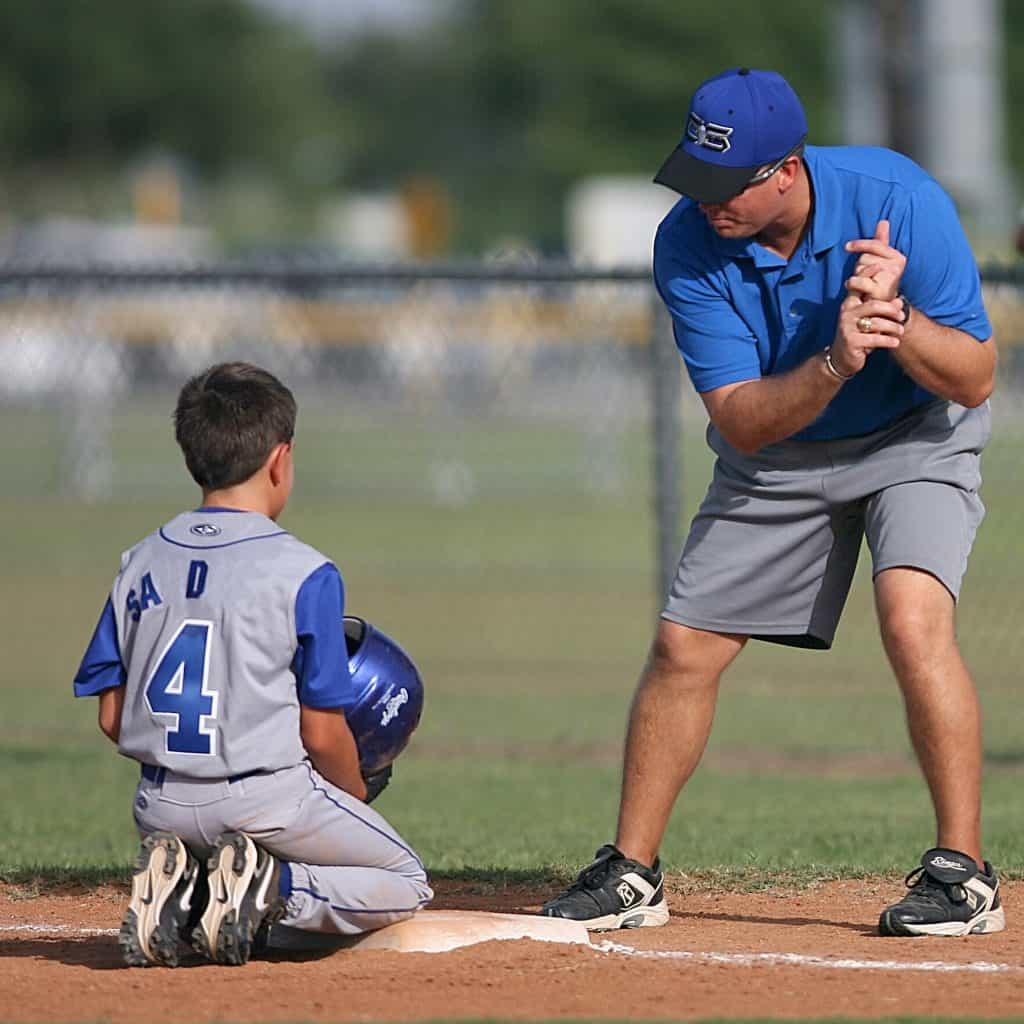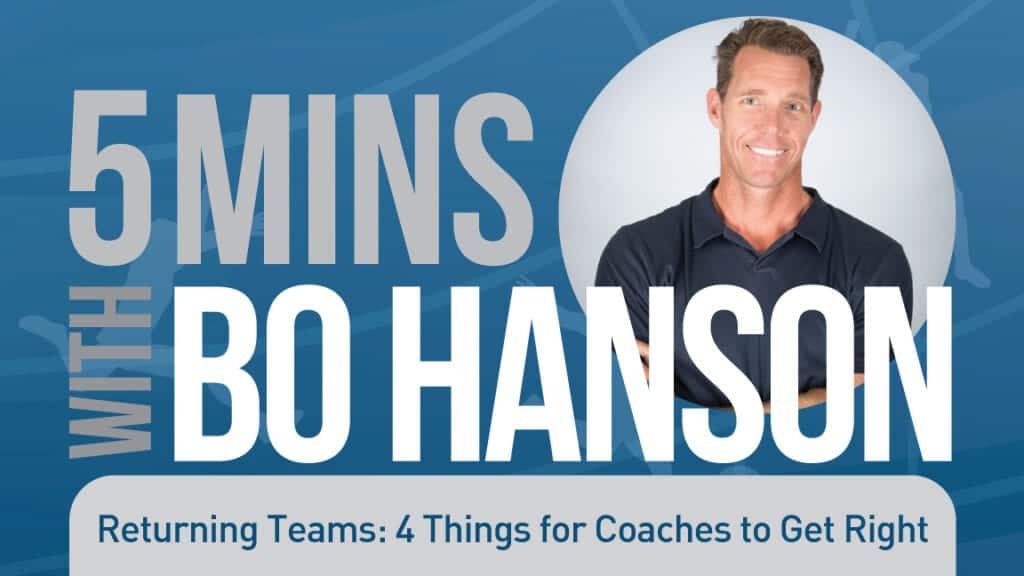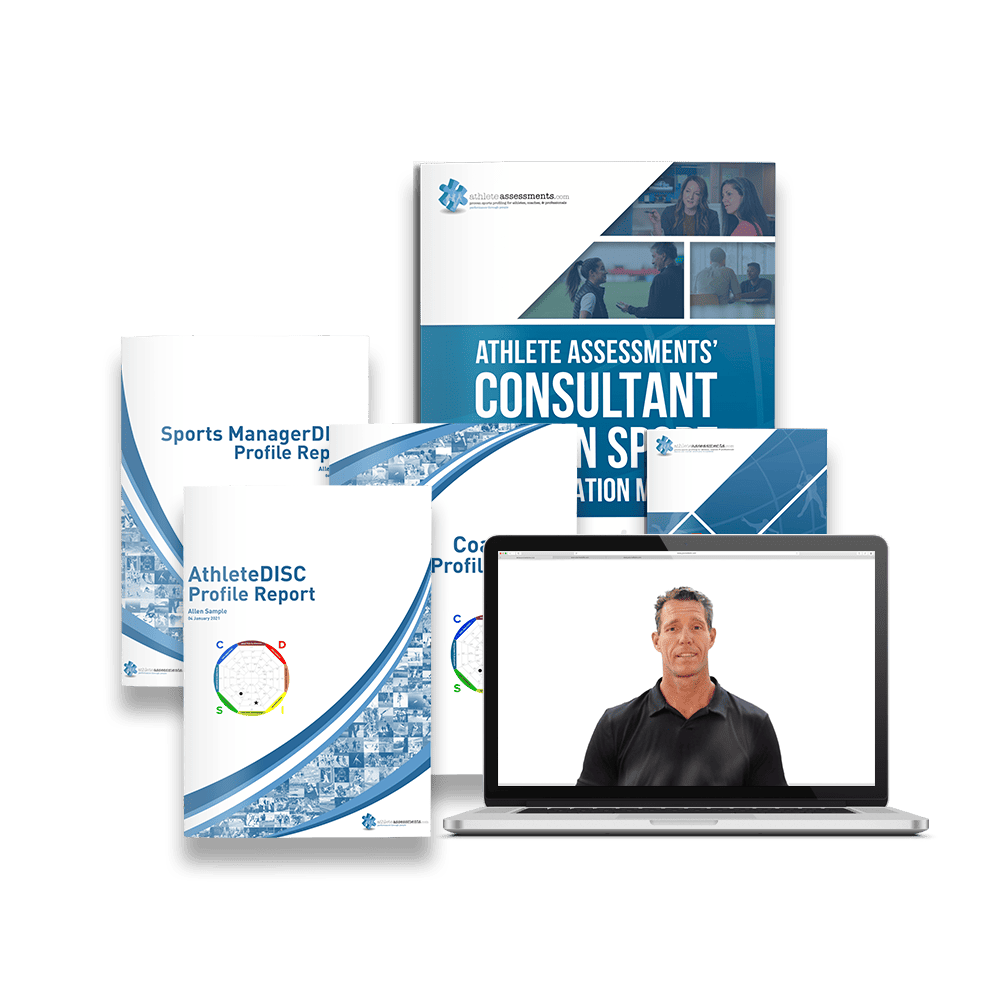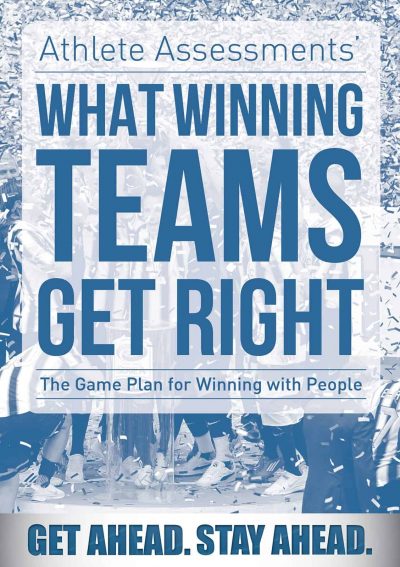Coaches are always evaluating performance, it’s a critical part of their role in order to be successful. Whether it be through assessing the scoreboard results of their team, individual athletes’ statistics, or even through the lens of their team’s culture. However, when it comes to evaluating their own performances, who should coaches turn to when they are looking to improve their own efficacy and skills?
Seeking some insight into the inner workings of coach development and chasing improvements, we went straight to the experts. Speaking to seven-time Olympic coach, Tim McLaren; highly sought-after consultant, Jeff Troesch; experienced life coach to sporting professionals, Carlette Patterson; and retired professional athlete, Brian Townsend, who now heads up leadership development at one of America’s top ranking public universities. Each of these sporting professionals bring their unique experience and points of view to this topic, providing personal examples, useful strategies, and most importantly evidence of the resulting benefits coaches see when they invest in their own development.
"As coaches we expect our athletes to constantly be chasing the 0.1% improvements to their performance, and we should be no different."
- Bo Hanson
Seeking professionals or consultants for a coach’s development are as much a part of sport today as strength and conditioning coaches are for athletes. Discussions around using them and the positive outcomes of taking this action have become not only common place, but are so highly-regarding that they are quickly influencing the landscape of coaching and what it means to be successful.
To put it simply, Brian Townsend, Director of Leadership Development and Community Engagement at the University of Michigan, says we all need coaching whether we admit it or not,
“That includes me! I have a coach! Research shows that diversity of thought creates better decision making, coaches help you think about how your thinking and perspective impacts performance, whether that’s helping or hurting.”
While the reasons for a coach to engage their own coach or consultant to work with are personal, and their needs will range from seeking perspective, accountability, or insight, one thing they all have in common is that they all recognize personal development as being as much of a performance factor as sport development. Just like when we seek ‘on-field’ sporting performance improvements or changes from our athletes, we hope that one athlete’s progression will have a positive impact on the rest of the team. Individual coach development is no different.
Seven-time Olympic rowing coach, Tim McLaren, says the power lies with the coach. Adding that furthering your development has to be more than ‘ticking a box’, and as a coach you have to want to be better and become a student of the ‘game of coaching’,
“The passion for improvement needs to be there outside of standard ‘official’ accreditation courses.”
But we also acknowledge that both kinds of development rely as much on drive and consistency from the individual, as they do on having a quality professional that provides a genuine and personalized ‘service’ and values the process as much as you do.
So, what’s the difference between having a mentor versus a coach or consultant?
We asked our experts, and according to Consultant and Mental Performance Coach, Jeff Troesch, a mentor is primarily a one-on-one coach to specifically engage in an individual coach’s development and act as a sounding board. Adding,
“I think a highly skilled consultant does that AND integrates the training with more direct impact on the system. It may still be a one-on-one relationship, but it is designed with the intention to affect the team or organization immediately in front of the coach, as well as acting as a sounding board for future growth.”
While some coaching professionals may be consulted for their expertise in a specific development area, otherwise are sought out for their holistic approach to effect positive change and results.
Carlette Patterson, CEO of Patterson Sports Ventures, specializes in life coaching for sport professionals, athletes, and coaches. Carlette ensures each individual knows that she is championing for them, and that her full focus is on the client and what they want to achieve, looking at how she can best serve and support them to be the person they are committed to being. Detailing her approach she says,
“When working with a very experienced, high profile, and successful client, they want me to listen to them and what they are committed to achieving. I provide support and space for them to process, challenge them to honor themselves and their commitment to their work, and have new skills for them to learn and incorporate into their work to produce great results.”
Ultimately, a quality coaching professional values high-performance as much as a coach or athlete would, and their approaches are designed to deliver outcomes that improve coaching performance of existing coaches. This is something that four-time Olympian and Lead Coaching Consultant for Athlete Assessments, Bo Hanson is extremely passionate about,
“As a coach, the opportunities for learning and growth are endless and expansive. We see the most effective coaches are those who look outside of their own experience and sport, and see the immense value of seeking external expertise.”
Getting down to the content of these coaching sessions, while each professional has their own tried-and-tested recipe for developing experienced coaches, they all agree that quality coaching is founded on self-awareness and knowledge of a coach’s personal coaching style. Understanding why they do what they do, is a critical first step in coach development. Consequently, each of these consultants begin their process by developing this knowledge through having the coach complete an Athlete Assessments CoachDISC profile.
Upon completing the short 12-minute survey, administered by the coaching professional, the coach will be provided with a personalized DISC Profile report. Contained in this 40-page report is the opportunity to develop fundamental awareness of their own preferred behavioral style, an insight into their strengths and limitations, plus knowledge of their potential areas for improvement, all within the context of their current coaching role. The CoachDISC Profile also details at which the pace the coach prefers to tackle tasks, how they build relationships, communicate with others, or deal with challenges, and information about environments they naturally thrive in. Importantly, each CoachDISC delivers an insight into how the individual is likely to act under stress, allowing them to develop strategies for adapting their response when needed.
The aim of a DISC Profile is never to improve on your profile, as there is no best or worst, it is about developing a level of self-awareness that recognizes that your preferred way to behave may not be suited for every situation. It is about understanding yourself and others to create effective communication strategies, while learning to adapt your behaviors to achieve the best outcome within a given environment.
The coaching professional will then assist the coach by providing practical ways to take their developed knowledge and apply their DISC Profile to their coaching. A strategy used by Tim is to take their DISC Profile a step further, advising the coaches to seek feedback from the people around them (we call this Observer Feedback and it’s an included capability of all our DISC Profiles!). Then, using this feedback alongside the report, coaches consider these results and develop a plan for improving the potential limitations of their profile within their role.
Tim says this could include,
“Asking good questions and knowing your athletes, or managing the team, individuals, or practice in a more organized way, adjusting their pace, or even using more animated body language and conviction along with stronger degrees and volume to reinforce team behaviors and attitudes.”
Agreeing with this strategy, Brian added that providing a scope for seeing situations from a different perspective, through the lens of understanding themselves, helps coaches stay in alignment with their vision and goals, all while providing their teams with a different perspective for coaching togetherness. He explained,
“Commonly, coaches want to gain a greater understanding of culture, leveraging the strengths of other people, behavioral styles, and the growth mindset.”
Having a high-level of trust and connection is essential to achieving success when working with experienced coaches, because technical expertise aside, the level of coaching we are talking about is still coaching and sits on a foundation of trust. It’s critical to know where the coach’s priorities lie, different coaches will have different priorities when it comes to their development, and sometimes a coach can be engaging them out of a fear of being left behind.
This also helps to develop the foundation for work by acknowledging the challenges facing coaches today, as well as those specific to your client, Jeff added that from his experience,
“I believe that handheld devices and social media have exacerbated some of the traditional challenges for coaches, namely, minimizing comparisons with others, keeping athletes’ focus consistent, building rapport and cohesion in the locker room, and generating efficiencies in athletes’ time utilization.”
While we had access to the consulting half of some of the most successful partnerships in sport today, we asked the question:
We asked Jeff to elaborate on some of the recurring themes that emerge from his work with coaches, he lists:
- Team cohesion/team building activities,
- Establishment of prioritized team values/mission/behaviors,
- Athlete clarification of purpose – what is your why?,
- Improving communication skills within the system,
- Putting effective systems in place for Sport Development and Human Development,
- Dealing with challenging athletes,
- Pre-game ritual/preparation,
- Attentional control development,
- Relaxation/Breathing practice and implementation,
- Confidence development,
- Thought control,
- Daily process goals – tied to bigger developmental plan,
- Purposeful post game evaluation tool for feedback loop,
- Managing activation levels,
- Practice and game congruency,
- Simplification- identification of task relevant cues,
- Imagery exercises + practice/game implementation,
- Embracing adversity, building resilience, body language, playing with pain- hurt vs. injured
While we had access to the consulting half of some of the most successful partnerships in sport today, we asked the question:
As a coach, what should be my key priorities when seeking personal coach development?
First and foremostly, Carlette says that coaches should see this decision as playing as much of a factor in the success of their team, as athlete selection, “Be as intentional about choosing your consultant or coach as you are about recruiting teammates. Invest in a coach, that you trust, that fits who you are, and who can best support you to achieve your desired outcomes.”
Jeff added that having this clarity about what you want to accomplish when bringing in a consultant means they are able to customize their development and tailor it to their own specific circumstances. But he noted another important factor is to come in with an open mind and flexibility, “Allow the consultant latitude to use their expertise to shine light on other things in the system about which you might be oblivious so that you can get the most out of the consultant’s knowledge base. The Athlete Assessments DISC profile is a useful starting point but this can also be done as a how-well-do-i-know-myself Q & A group discussion.”
And, closing with a positive commonality that surprised him in his work with coaches, Jeff says,
“Even the most successful coaches are grateful for the additive input, assistance, and guidance. Most have shown great humility (at least privately) as they are guided toward an enlightenment about things they were unaware of or were poorly managing.”
MEET THE EXPERTS
Jeff Troesch
Jeff Troesch
Tim McLaren
Tim McLaren
Carlette Patterson
Carlette Patterson
Brian Townsend
University of Michigan
Brian Townsend
LOVE THIS ARTICLE?
DOWNLOAD YOUR FREE, PRINTABLE PDF COPY BY FILLING OUT THE FORM BELOW!
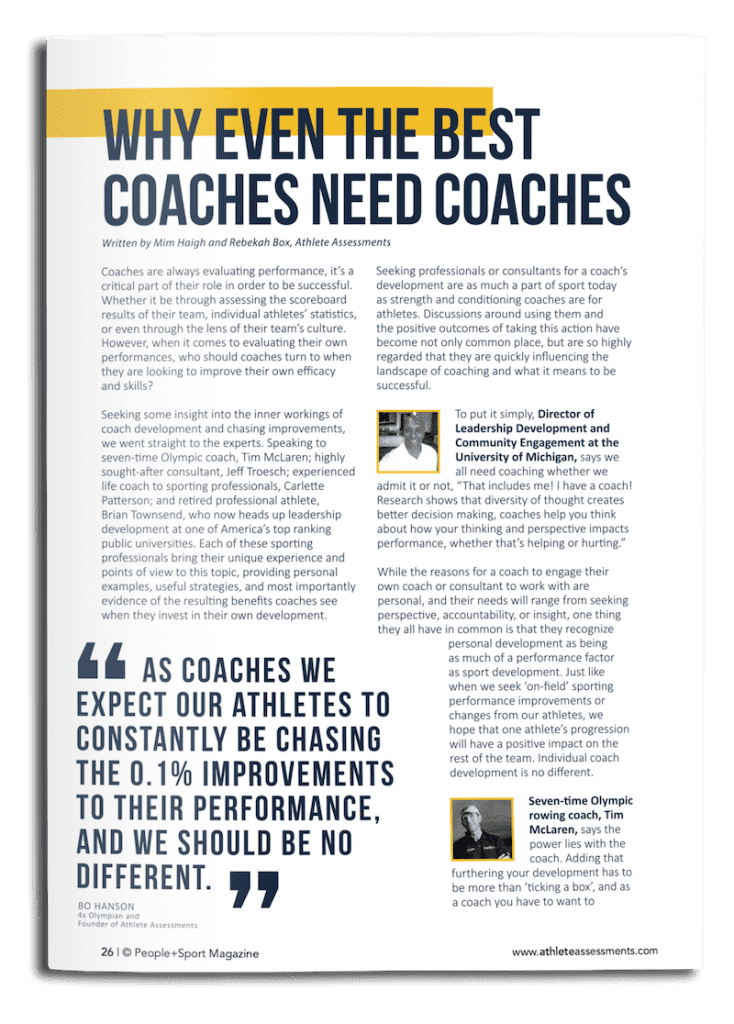
Where to from here?
Whether you are a coach, consultant, sport psychologist, or sporting professional, your clients rely on you to bring quality, tested tools which will elevate their performance to new levels. Athlete Assessments DISC profiles provide a solid foundation to leverage improvement and deliver sustained growth in athletes, coaches, and teams. We encourage you to search our free online resources, which detail how to apply profiles and their impact on performance.
If you are a consultant looking to take your and your clients’ understanding of their personal coaching style to the next level, we encourage you to reach out to us to find out how our DISC Profiling tools can be a great addition to your practice. Or, if you are a coach interested in seeking personal coach development but aren’t sure where to start, we invite you to contact us as we have a breadth of consultants across the globe who we would love to help you get in contact with.
Recommended Articles
Let me ask you the most important of coaching questions, “What style of coach are you?” As coaches we occupy a special, even privileged place in our athletes’ lives. On the surface, we are just a part of their athletic journey, but really, we often spend as much, if not more time with our athletes, than their family and close friends.
Dr LaTisha Bader, Certified Mental Performance Consultant on using Athlete Assessments’ DISC Profiling to develop self-awareness and team chemistry.
https://www.youtube.com/watch?v=pK1P7c0QCAMCoaches get clear on your priorities! Seasons are set to start again, athletes will or have already resumed training and competition schedules, but life looks different. Make sure as a coach, you’re clear on what matters…


